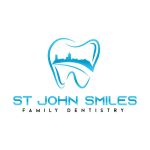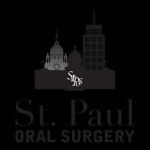Everything You Need to Know About Oral Cleaning Tools
- 1. The Importance of Oral Cleaning Tools
- 2. Types of Oral Cleaning Tools
- 3. How to Choose the Right Oral Cleaning Tools
- 4. The Role of Brushing and Flossing in Oral Care
- 5. Modern Oral Cleaning Tools and Technology
- 6. Real-Life Success Stories Using Oral Cleaning Tools
- 7. Maintaining Oral Health for the Long-Term
- 8. Where to Buy the Best Oral Cleaning Tools
1. The Importance of Oral Cleaning Tools
Oral cleaning tools are essential for maintaining good oral hygiene. Proper use of tools such as toothbrushes, floss, and mouthwash can significantly reduce plaque buildup, prevent cavities, and reduce the risk of gum disease. A clean mouth is not only vital for oral health but also impacts overall well-being. Without these tools, bacteria can accumulate, leading to various oral issues such as bad breath and tooth decay.
2. Types of Oral Cleaning Tools
There are many different types of oral cleaning tools available, each serving a specific purpose. The most common tools include:
- Toothbrushes: Manual or electric brushes help to remove plaque and food particles from teeth.
- Dental Floss: This tool helps clean between teeth, where a toothbrush can't reach, preventing plaque buildup.
- Water Picks: A water flosser can be a more comfortable alternative to traditional flossing, using a stream of water to remove debris.
- Mouthwash: This is used for freshening breath and providing an extra layer of cleaning for the teeth and gums.
- Interdental Brushes: These are small brushes designed to clean between teeth, especially for those with wider gaps.
3. How to Choose the Right Oral Cleaning Tools
Choosing the right oral cleaning tools depends on your individual needs. For example, if you have braces, you may require a special toothbrush or floss. If you suffer from sensitive gums, a soft-bristled toothbrush may be necessary. Consulting with a dentist can help you determine the best tools for your oral health routine.
4. The Role of Brushing and Flossing in Oral Care
Brushing your teeth twice a day and flossing once daily are essential practices for maintaining oral health. Brushing helps to remove plaque and food particles from the surfaces of the teeth, while flossing reaches areas that brushing cannot. Together, they help prevent the buildup of bacteria that leads to tooth decay and gum disease.
5. Modern Oral Cleaning Tools and Technology
In recent years, advancements in technology have led to the development of modern oral cleaning tools such as electric toothbrushes, sonic toothbrushes, and advanced water flossers. These tools offer superior cleaning power, and many feature timers, pressure sensors, and specialized modes for different needs. These innovations make it easier and more efficient to maintain excellent oral hygiene at home.
6. Real-Life Success Stories Using Oral Cleaning Tools
Many people have experienced life-changing results after incorporating the right oral cleaning tools into their routines. For instance, a user of an advanced water flosser reported significantly reduced gum inflammation and better breath within weeks of use. Another individual with braces found that using a specialized electric toothbrush improved their oral health and made it easier to clean their teeth.
7. Maintaining Oral Health for the Long-Term
Consistent use of proper oral cleaning tools can help you maintain oral health for years to come. Alongside regular visits to the dentist, maintaining a good oral care routine at home is critical. Using the right tools will help you avoid costly dental procedures and keep your smile looking bright and healthy.
8. Where to Buy the Best Oral Cleaning Tools
If you're looking for high-quality oral cleaning tools, visit Dentistry Toothtruth for a curated selection of the best products. From electric toothbrushes to water flossers, they offer tools that will enhance your oral hygiene routine and help maintain your oral health.







 St John Smiles4.0 (238 review)
St John Smiles4.0 (238 review) Queens Dental Group4.0 (114 review)
Queens Dental Group4.0 (114 review) Smile Scarsdale Pediatric Dentistry & Family Orthodontics4.0 (480 review)
Smile Scarsdale Pediatric Dentistry & Family Orthodontics4.0 (480 review) Dr. Jean L. Beninato, DMD3.0 (7 review)
Dr. Jean L. Beninato, DMD3.0 (7 review) Dr. Bruce King DDS4.0 (112 review)
Dr. Bruce King DDS4.0 (112 review) St. Paul Oral Surgery - Mendota Heights4.0 (214 review)
St. Paul Oral Surgery - Mendota Heights4.0 (214 review) The Importance of Oral Health Education During Pregnancy for a Healthy Pregnancy
The Importance of Oral Health Education During Pregnancy for a Healthy Pregnancy Best Tips for Brushing Your Teeth Properly for Healthy Gums: Essential Techniques for Oral Health
Best Tips for Brushing Your Teeth Properly for Healthy Gums: Essential Techniques for Oral Health Why Skipping Dental Checkups Can Lead to Bigger Oral Health Problems
Why Skipping Dental Checkups Can Lead to Bigger Oral Health Problems Advantages of Porcelain Dental Restorations
Advantages of Porcelain Dental Restorations How Can Diabetes Cause Tooth and Gum Problems? Preventing and Managing Oral Health Issues
How Can Diabetes Cause Tooth and Gum Problems? Preventing and Managing Oral Health Issues Healthy Habits for Promoting Good Oral Health and Hygiene: Tips for a Healthy Smile
Healthy Habits for Promoting Good Oral Health and Hygiene: Tips for a Healthy Smile